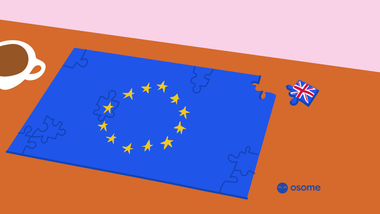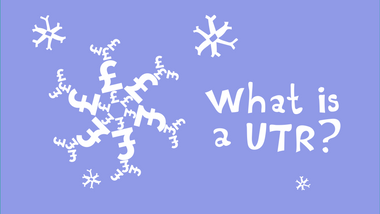OSS or IOSS? VAT One-Stop-Shop Rules for E-commerce in the EU
Since July 2021, the European Union’s (EU) existing VAT rules have been replaced by two new alternatives: the One-Stop-Shop (OSS) scheme, and the Import One-Stop-Shop (IOSS) scheme.

On the 1st of July 2021, the European Union’s (EU) existing VAT rules will be replaced by two new alternatives: the One-Stop-Shop (OSS) scheme, and the Import One-Stop-Shop (IOSS) scheme.
The goal is to simplify the way selling is done within the EU by enabling suppliers to declare the VAT for all their transnational European B2C sales on a single return.
In this article, we’ll take a look at the two schemes—outlining what they are, why they’re useful, who qualifies, and when VAT returns need to be submitted.
If you’re wondering how else to start selling in the EU, we’ve prepared a guide to help you register you for VAT, handle tax reports and filings, and provide a fiscal representative if you need one – all in Europe.
The OSS Scheme
The OSS scheme aims to streamline and simplify the process of VAT obligations for businesses operating in different EU member states. Technically speaking, the OSS itself is an electronic portal that businesses use to pay the VAT they owe as a result of e-commerce sales to EU-based consumers.
When using the OSS, businesses pay VAT according to the rate of the Member State where their goods are dispatched to—or where their services are supplied.
Note
They must also keep all relevant records for a minimum of 10 years.
However, it’s worth noting that there are actually two separate versions: the Union One Stop Shop and the Non-Union One Stop Shop.
So who uses which version, and under what circumstances? To find out, check out the tables below.
| Supplies of services to consumers (B2C) | |
|---|---|
| Non-EU established taxable person/supplier | Non-Union scheme (OSS) |
| EU established taxable person/supplier | Union scheme (OSS) |
| Distance sales of goods within the EU | |
|---|---|
| Non-EU established taxable person/supplier | Union scheme (OSS) |
| EU established taxable person/supplier | Union scheme (OSS) |
| Domestic supplies of goods by deemed suppliers | |
|---|---|
| Non-EU established taxable person/supplier | Non-Union scheme (OSS) |
| EU established taxable person/supplier | Union scheme (OSS) |
Who Qualifies?
The OSS scheme is for services, intra-Community distance sales of goods, and sales of goods through an online electronic interface. It exists for businesses that supply goods and services to non-taxable persons in different member states. Defined services include:
- Cultural
- Educational
- Sports
- Scientific
- Immovable property
The OSS can be used by:
- Taxable persons established in the EU (that are not deemed to be supplie
In this case, the OSS can be used when supplying B2C services that take place in Member States where the person is not established. It can also be applied to distance sales of goods within the EU.
- Table persons not established in the EU
For all distance sales of goods within the EU.
- Electronic interfaces (whether established in our outside the EU) that facilitates supplies of goods (and is deemed to be the supplier)
This would apply for distance sales of goods within the EU, as well as the domestic supply of certain goods.
The New Rules Regarding Thresholds
The existing local thresholds for intra-Community distance sales have been replaced with a new EU-wide threshold of €10,000—this will be applicable to the total supply of intra-Community distance sales of goods sold to all member states, and digital services supplied to final consumers in other member states.
If the threshold is not exceeded
The supply will be taxed according to the VAT rate of the seller’s country.
If the threshold is exceeded
Note
This only applies to sellers using the OSS scheme. Intra-Community distance sales of goods and digital services that exceed the threshold will be taxed according to the VAT rates of the member states in which the consumers live. However, the VAT itself can be paid via the UK tax authority (i.e. HMRC).
How Does The Threshold Apply To Services?
You can only apply the threshold to digital services, and not to other services supplied in the consumer’s resident EU state (such as construction work).
If the seller has a permanent establishment within another EU member state, it cannot apply the threshold to the distance sales of goods and provision of digital services in that member state. The VAT for the supply of the goods and services must be declared in that member state by using the normal process.
Submission Of Returns Under The OSS Scheme
The OSS return is submitted quarterly—by the end of the first month of the next quarter. For example, the first deadline is 31 October 2021. The VAT that companies owe must be paid on the same date as they lodge their declaration. Unlike the current MOSS scheme, the data provided on an OSS return can be changed on the next OSS return—not by correcting an earlier return.
If the supply is located in a different nation to the business’s permanent establishment
The return can also be used to declare the goods or services covered by the OSS scheme which are supplied by permanent establishments in other EU states if the place of supply is not the state where the permanent establishment is located.
If supply is in the same location as the business’s permanent establishment
On the flip side, if the permanent establishment is also the same place as the supply, then the supplies are declared on a standard VAT return.
The IOSS Scheme
The Import One Stop Shop (IOSS) special scheme is for distance sales of goods imported from non-EU countries.
The IOSS scheme is being introduced to simplify the declaration of import VAT for low-value consignments. After all, remember the VAT exemption for import consignments with a value of up to €22 was abolished on the 1st of July 2021.
What’s Changing?
Usually, buyers have to submit a customs declaration and pay VAT when the goods arrive in the EU—now, the sellers of the goods can use the IOSS scheme to collect VAT from the buyers upon payment, and declare the VAT to the tax authority in their monthly IOSS returns.
Sellers using the IOSS scheme can add the import VAT to the sales price of the goods at the point of sale—essentially, buyers won’t be slapped in the face with any further tax obligations when they receive the goods.
Once a business (who is using this special scheme) registers for the scheme in one EU member state, and declares and pays VAT on the import of the goods in that member state, they won’t have to do so in every member state to which the goods are imported.
Who Qualifies?
The consignments must tick all of the following boxes:
- Imported to final consumers whose place of residence is in the EU
- Located (at the conclusion of the sales contract) in a non-EU country
- Have an intrinsic value not exceeding €150 and not subject to excise duty
The intrinsic value consists of the price of the goods sold (not including transport and insurance costs—unless the costs are included in the price) and other taxes and charges made by the relevant customs authorities.
Submission of Returns
IOSS are submitted on a monthly basis. Return must be made by the end of the month following the month of supply. If you supplied goods on July 1st, for instance, then you would have to submit your return by the 31st of August 2021. The same applies to the payable VAT.
Similar to the OSS return, if the data reported on the IOSS return has to be changed, you submit the changes on the next IOSS return.
It’s Time For Something New
Out with the old, in with the new. Both schemes aim to simplify the arduous and complicated process of remaining compliant while trading across different EU member states.
Still, let’s face it—working out your VAT obligations is a bore. It’s a needlessly complicated, brain-draining and tedious process that involves time, resources and manpower—resources that you could otherwise put to good use growing your business, and it’s made more difficult by the fact that governments constantly change the tax code.
Sigh no more. With Osome, keeping your books in order won’t keep you up at night. Oh yes, it’s that easy.
If you need any advice or help with the OSS or IOSS, or if you simply want to save your business 40 hours every month, speak to a trusted accountant in the UK here.







